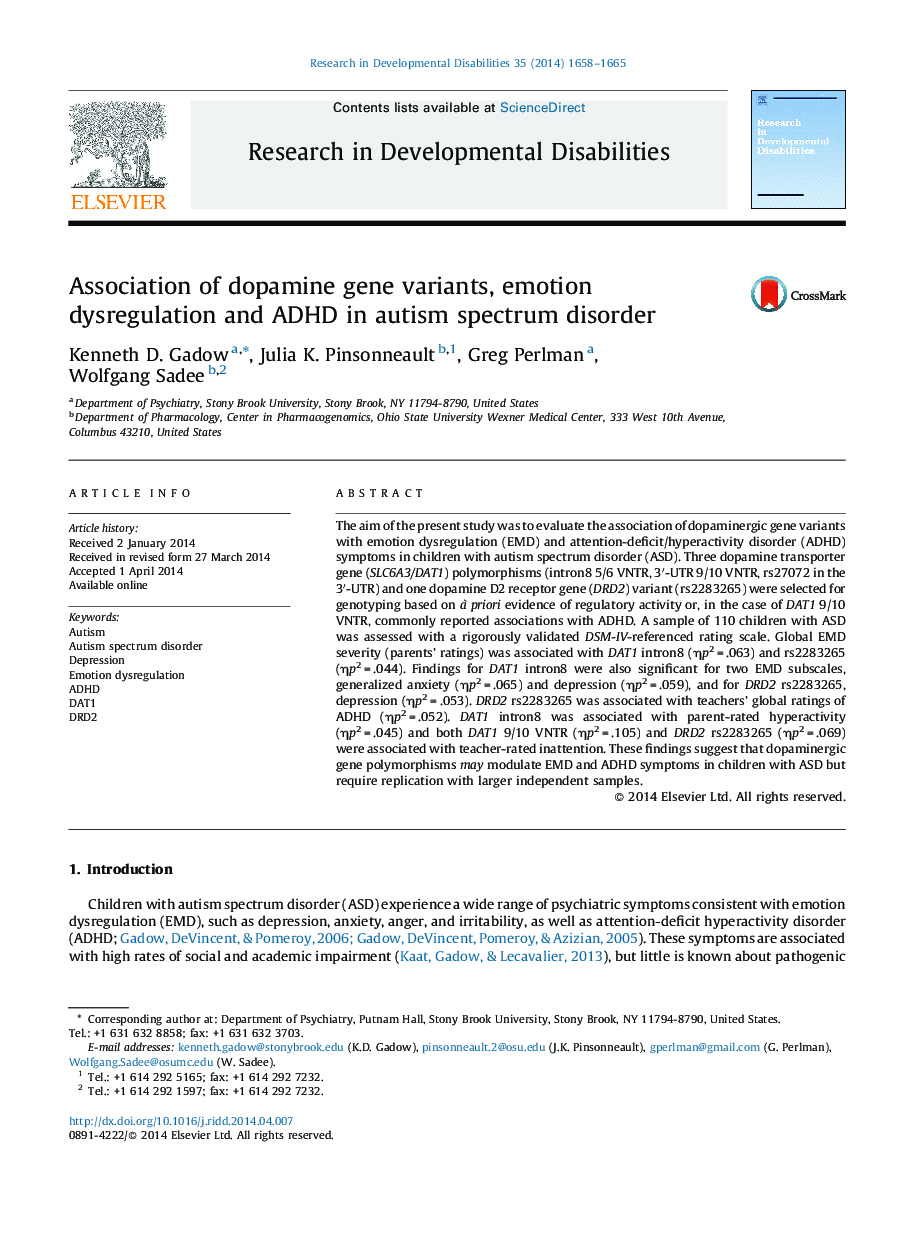| Article ID | Journal | Published Year | Pages | File Type |
|---|---|---|---|---|
| 10317242 | Research in Developmental Disabilities | 2014 | 8 Pages |
Abstract
The aim of the present study was to evaluate the association of dopaminergic gene variants with emotion dysregulation (EMD) and attention-deficit/hyperactivity disorder (ADHD) symptoms in children with autism spectrum disorder (ASD). Three dopamine transporter gene (SLC6A3/DAT1) polymorphisms (intron8 5/6 VNTR, 3â²-UTR 9/10 VNTR, rs27072 in the 3â²-UTR) and one dopamine D2 receptor gene (DRD2) variant (rs2283265) were selected for genotyping based on à priori evidence of regulatory activity or, in the case of DAT1 9/10 VNTR, commonly reported associations with ADHD. A sample of 110 children with ASD was assessed with a rigorously validated DSM-IV-referenced rating scale. Global EMD severity (parents' ratings) was associated with DAT1 intron8 (ηp2 = .063) and rs2283265 (ηp2 = .044). Findings for DAT1 intron8 were also significant for two EMD subscales, generalized anxiety (ηp2 = .065) and depression (ηp2 = .059), and for DRD2 rs2283265, depression (ηp2 = .053). DRD2 rs2283265 was associated with teachers' global ratings of ADHD (ηp2 = .052). DAT1 intron8 was associated with parent-rated hyperactivity (ηp2 = .045) and both DAT1 9/10 VNTR (ηp2 = .105) and DRD2 rs2283265 (ηp2 = .069) were associated with teacher-rated inattention. These findings suggest that dopaminergic gene polymorphisms may modulate EMD and ADHD symptoms in children with ASD but require replication with larger independent samples.
Related Topics
Life Sciences
Neuroscience
Behavioral Neuroscience
Authors
Kenneth D. Gadow, Julia K. Pinsonneault, Greg Perlman, Wolfgang Sadee,
